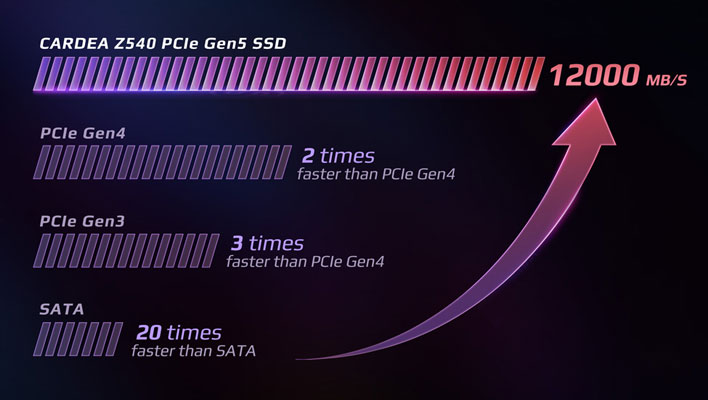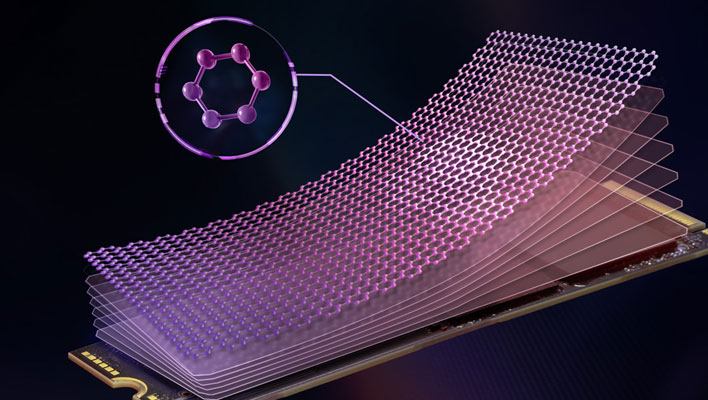Wondering where all the
blistering-fast PCI Express 5.0 solid state drives are at? So are we, though good news—they're finally starting to show up, and they bring to the table next-gen data transfer speeds that hit 10GB/s (10,000MB/s) or even higher. Such is the case with TeamGroup's newly unveiled T-Force Cardea Z540 SSD available in a capacious 2TB trim.
For users wanting to race in the flash lane (get it?), the theoretical maximum bandwidth afforded to PCIe Gen 5 drives with an NVMe x4 interface (which leverages four lanes) is around 15.8GB/s. That's double the ~7.8GB/s of PCIe Gen 4 SSDs. We're not going to see any drives that tout the full bandwidth offered because of overhead and other factors, but you can bet that SSD makes will push things as far as they can.
Based on TeamGroup's rated specifications, the Cardea Z540 comes impressively close for sequential reads, while the rated sequential write performance sits at 10GB/s. As for 4K random reads and writes, T-Force says its flagship SSD tops out at up to 1.4 million and 1.5 million IOPS, respectively.
 Source: TeamGroup
Source: TeamGroup
Sequential performance mostly comes into play with shuffling around large files, whether it's transferring high-resolution videos, game backups, and so forth. Random performance, on the other hand, is perhaps more meaningful for day-to-day usage and typical workloads, and that includes gaming. That said, SSD makers are fond of touting sequential figures, like TeamGroup does in the graph above.
Regardless of sequential versus random speeds, what we've seen so far is drive makers employing thick and sometimes active cooling solutions. For example, Gigabyte's
Aorus Gen 5 SSD sports a tall heatsink, while CFD Gaming's SSD utilizes a
21K RPM fan to keep temps in check.
TeamGroup has managed to avoid either type of cooling on its T-Force Cardea Z540 SSD. Instead, the company is talking up the "miraculous force of graphene" and its honeycomb structure.
"The miraculous graphene boasts a perfect hexagonal honeycomb structure. It features exceptional diagonal conductivity that allows heat at the primary heat source to be rapidly transferred away horizontally, delivering excellent heat dissipation performance. The ultra-think graphene heatsink can be complimentary to any original motherboard heatsink," TeamGroup says.
In addition to its patented heatsink design, the company also says it's latest SSD uses intelligent thermal conditional technologies by way of internal temperature sensors to prevent overheating. That's not really unique; it basically means the Cardea Z540 will throttle as needed, like all SSDs so.
The overarching caveat here is the price. TeamGroup says its
2TB T-Force Cardea Z540 will be available in the second quarter of this year for $499.99.



